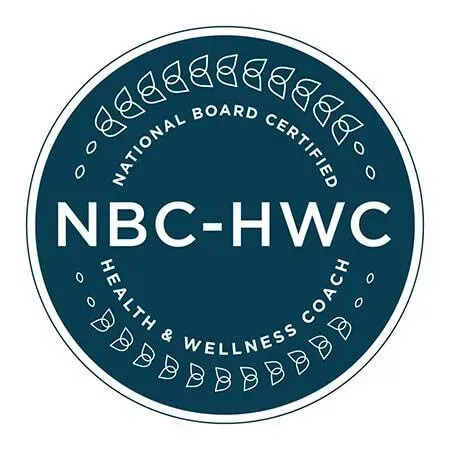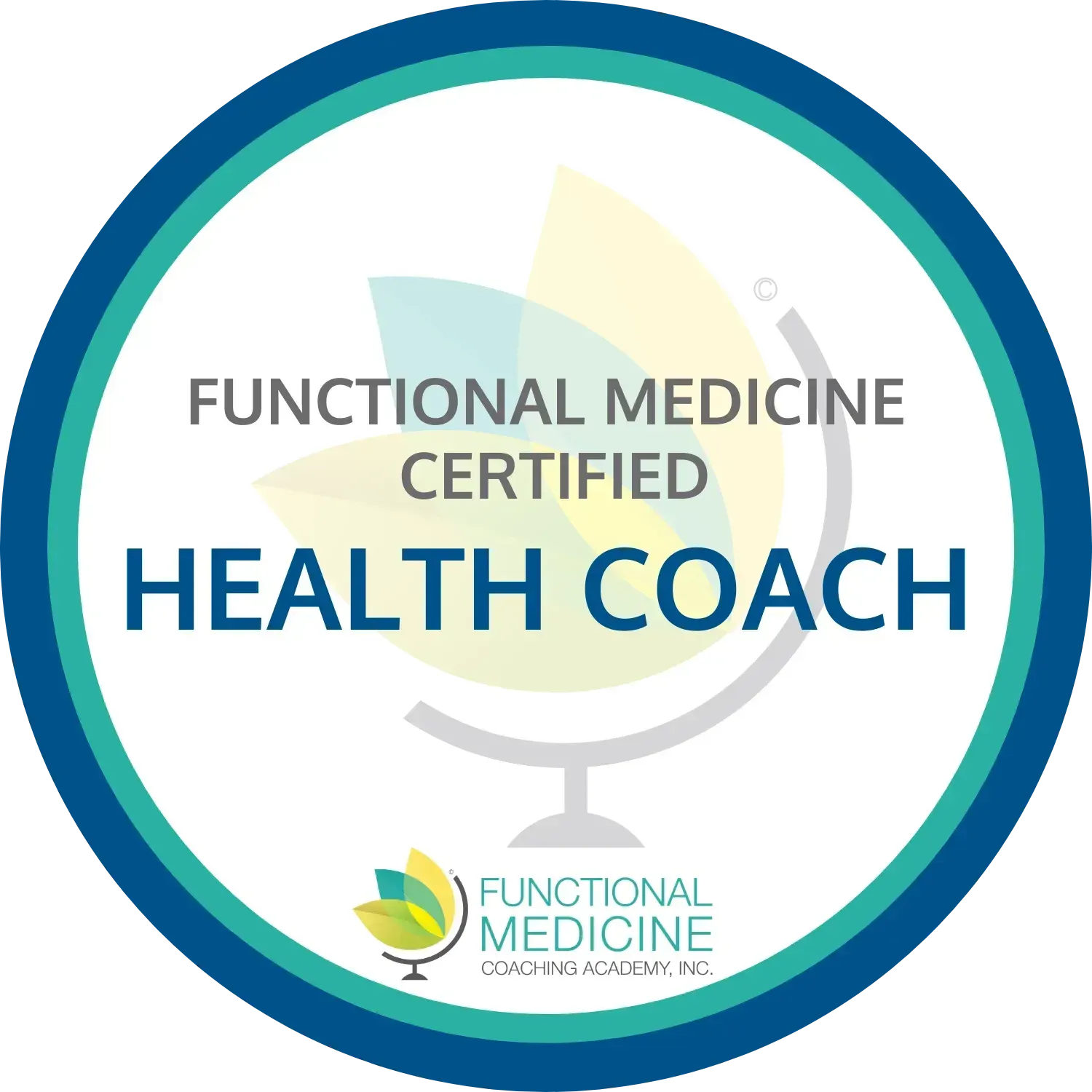Why Reducing Calories Can Hurt Your Weight Loss in Midlife

As a Nationally Board-Certified Functional Medicine Health Coach and Midlife Hormone Mastery Coach, I work with women daily who are navigating the complexities of weight gain, especially during menopause. One of the most common misconceptions I run into is the belief that reducing calories to the absolute minimum is the way to lose weight. In fact, I hear so many women tell me they’ve started eating just one meal a day or drastically cutting their calories in an attempt to see the scale drop. And while, at first, this may seem to work, it often backfires in the long term—especially when you're in menopause.
The Hormonal Shift and Weight Gain
During menopause, women experience a drastic shift in hormones, particularly a decline in estrogen and progesterone. This hormonal change can lead to an increase in visceral fat, the type of fat that accumulates around the abdomen. Low estrogen levels can also make it harder for your body to regulate blood sugar and insulin, leading to insulin resistance, which can contribute to weight gain.
When you drastically reduce calories, your body goes into a "starvation mode," signaling your metabolism to slow down in an attempt to preserve energy. This can make it even harder for your body to shed fat in the long run, even if the scale seems to move at first.
The Effects of Calorie Reduction on Your Hormones, Gut, and Liver
While cutting calories drastically may lead to initial weight loss, it can have some serious negative consequences, particularly for your hormones, gut health, and liver function. Here’s why:
Hormones: Your body needs a certain amount of calories to keep your hormonal systems functioning optimally. When you drastically reduce your intake, it can disrupt your thyroid function and even suppress your sex hormones, such as estrogen, progesterone, and testosterone. As your body enters a "starvation" mode, it prioritizes basic survival functions over things like hormonal balance, leading to weight gain, fatigue, irregular periods, and more.
Gut Health: Low calorie intake can affect your gut microbiome, which plays a crucial role in digestion, nutrient absorption, and overall health. When you’re not getting enough nutrients, your gut may not function properly, leading to poor digestion, bloating, and even gut dysbiosis (an imbalance in gut bacteria), which can make it even harder to lose weight.
Liver: Your liver is responsible for metabolizing fats and detoxifying the body. When you reduce your calories too much, your liver becomes stressed and less efficient at processing toxins and fat. This can slow down your metabolism, making it easier for weight to accumulate. Additionally, lower calorie diets can lead to nutrient deficiencies, which puts added pressure on your liver, preventing it from functioning optimally.
Why Your Weight Comes Back Once You Add Calories
Here’s the kicker: when you drastically reduce calories, your body adapts by slowing down its metabolism to conserve energy. This is a natural survival mechanism. So, when you eventually go back to eating a more normal amount of calories, your body is no longer burning energy efficiently, and those calories you reintroduce are more likely to be stored as fat.
This phenomenon is often called the yo-yo effect, where you lose weight quickly by cutting calories, but as soon as you start eating normally again, you gain back the weight (sometimes with interest). This can be especially damaging in midlife when your hormones are already in flux.
The Bottom Line: Quality Over Quantity
Instead of focusing on drastically reducing your calories, the focus should shift to nourishing your body with the right foods. Eating a high level of protein, good-quality fats, and phytonutrients from veggies and fruits is crucial for hormone balance, energy, and fat loss.
Incorporating heavy weight lifting into your routine can also help you build muscle, increase your metabolism, and keep your body strong, which is essential during midlife.
Sometimes Certain Supplements Are Needed for a Short-Term Boost
In some cases, certain supplements can play a role in breaking through a weight loss plateau or supporting your body while it adjusts to new nutritional changes. If your metabolism is sluggish, or if your hormones are out of balance, some targeted supplements (like adaptogens, mood stabilizers, or metabolism-boosting nutrients) can give your body the extra push it needs to start shedding fat again.
The key, however, is not to rely on these supplements long-term or as a crutch. They should be a temporary "band-aid" to get your body to a better place. The real goal is to understand why you're at a plateau, and focus on addressing the root cause of the issue, whether it’s hormonal imbalances, gut dysfunction, or stress. Once you address the underlying issues, you’ll be able to sustain weight loss and feel your best, without relying on these supplements forever. Other supplements, such as B vitamins, magnesium, Vit D are needed ongoing to help support your body versus the short term supplements to get over plateaus.
If you’re unsure how to incorporate a higher protein intake or get the proper nutrients into your diet, reach out so I can help coach you to do this in a way that works for your body and lifestyle.
If you’ve been cutting calories and still not feeling like yourself… it’s time for a different approach.
As a Nationally Board-Certified Functional Medicine Health Coach and Midlife Hormone Mastery Coach, I support women in midlife who are ready to stop the cycle of restriction, self-blame, and confusion. My signature LIGHT Process helps you restore balance, rebuild your relationship with food, and get to the root cause of what’s really going on in your body.
This isn’t about forcing weight loss—it’s about getting your body healthy, supporting your hormones, calming your nervous system, supporting your metabolism, gut health, liver function, and shifting your mindset so your body can finally let go of what it’s been holding onto.
If you're unsure about your current diet and how it’s impacting your weight, energy, and hormones, I offer 15-minute quick Q&A sessions to help you assess what might be working (or not working) for you. Book here for free! Or, if you’d prefer a more in-depth approach, book a free 30-minute health recovery call with me. Together, we can create a customized plan that helps your good in your body again.
You don’t need another extreme diet. You need a strategy that meets you where you are and honors what your body truly needs.
Ready to begin your journey?
Nationally Board Certified Health and Wellness Coach, NBC-HWC
Certified Functional Medicine Health Coach, FMCHC
Midlife Hormone Mastery Coach
"Helping women overcome hormone imbalance & gut issues naturally."


Copyright © 2023-2025 Be Well Health Coaching, LLC | All Rights Reserved | Privacy Policy | Disclaimer





